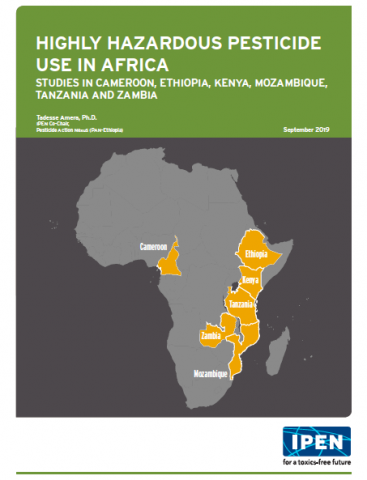Update on the use of highly hazardous pesticides in six African countries: Cameroon, Ethiopia, Kenya, Mozambique, Tanzania and Zambia

Highly Hazardous Pesticides (HHPs) are a threat to human health and the environment, with significant impacts on developing and transition countries. In 2015, more than 100 governments at the 4th International Conference on Chemicals Management agreed that HHPs were an issue of global concern and reached a consensus resolution to give priority to the promotion of agroecological alternatives in the process of implementing the strategy on HHPs developed by FAO-UNEP-WHO.[1]
The phase-out of HHPs and the promotion of agroecological alternatives contribute to achievement of the Sustainable Development Goals (SDGs) that call for, inter alia, efforts to promote sustainable agriculture (SDG2), healthy lives and well-being (SDG3), sustainable management of water (SDG6), decent work (SDG8), and the sustainable use of terrestrial ecosystems and halt of biodiversity loss (SDG15). Reduction and elimination of HHPs would make a significant contribution to each of these goals by reducing exposure and adverse impacts on human health and the environment.
Through IPEN's Toxics-Free SDGs Campaign, IPEN Participating Organizations[2] in Cameroon, Ethiopia, Kenya, Mozambique, Tanzania and Zambia conducted surveys of pesticide registration laws and examined the country situation on HHPs and possible alternatives. This document summarizes some of the main findings from those surveys.
Too view the complete reports, please visit the links below:
[1] SAICM/ICCM.4/CRP.16
[2] Centre de Recherche et d’Education pour le Développement (Cameroon); Pesticide Action Nexus (PAN-Ethiopia); Center for Environmental Justice and Development (Kenya); Africa Foundation for Sustainable Development (Mozambique); AGENDA (Tanzania); and Children’s Environmental Health Foundation (Zambia).
| Attachment | Size |
|---|---|
| 1.12 MB |
